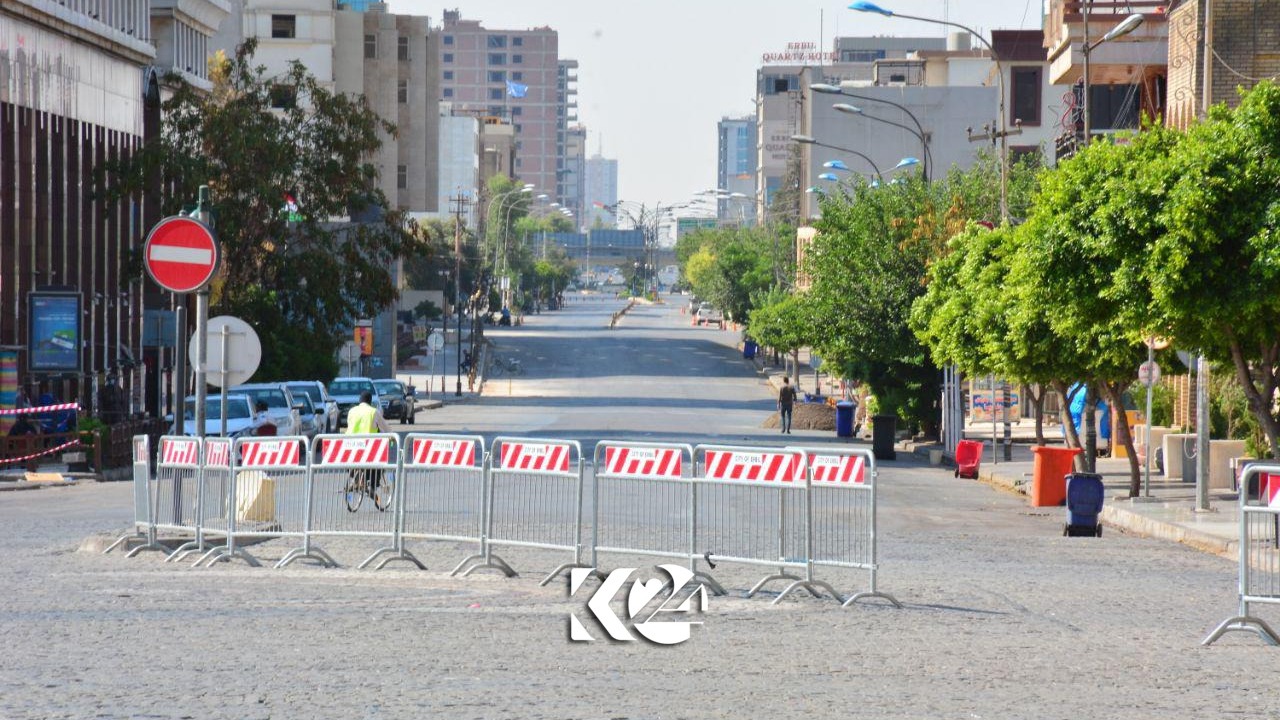COVID-19: Kurdistan announces over 180 new infections, less than 10 fatalities

ERBIL (Kurdistan 24) – On Friday, the Kurdistan Region’s Ministry of Health announced that eight deaths and 187 new infections of the coronavirus had been recorded in the past 24 hours.
A ministry statement explained that 59 people have been newly quarantined, bringing the number of individuals under the protective measure to 1,322 in 20 different locations.
Over the past day, health workers conducted 1,790 tests, making for a total of 140,621 that have been carried out, since the outbreak of the pandemic in the autonomous region.
The Health Ministry’s statement indicated that the total number of people infected with the virus in the region since it first emerged, has reached 6,844, of whom 4,361 are considered active cases and are still receiving medical treatment.
The number of infections is greatest in Sulaimani province, which has had 4,891 cases, reflecting its proximity to Iran, the original epicenter of the virus in the Middle East. There have been 1,572 cases in Erbil province,198 in Halabja, and 183 in Duhok.
Difficulties dealing with the coronavirus in Sulaimani province are reflected in other statistics as well. Figures released on Thursday revealed that over 300 health staff in the province have caught the disease, particularly those who work in hospitals and clinics that treat COVID-19 patients.
“I have been infected with the COVID-19 virus, but due to lack of doctors and health staff, I am obliged to continue working,” Mazin Fryad, the head of government medical laboratories in the province, told Kurdistan 24.
Fatalities due to the disease have grown substantially. Regional health officials are warning that it is likely the number will continue to climb. Describing the situation in grim terms on Tuesday, Mohammed Qadir, Spokesman for the Ministry of Health, warned, “The number of coronavirus infections is increasing drastically,” as he added, “The threat of the virus lies with infected individuals who are not showing any symptoms.”
Read More: Kurdistan health ministry says new COVID-19 cases 'increasing drastically'
On Friday, the Iraqi Ministry of Health and Environment announced it had recorded over 2000 new coronavirus cases in the past 24 hours. A day before, the International Rescue Committee (IRC) warned about the ever-increasing number of COVID-19 cases in Iraq.
Read More: COVID-19: Iraq again records over 2,000 cases, as IRC issues warning
Figures released today by Baghdad do not include the most recent developments in the Kurdistan Region, which has its own health ministry and typically announces results later in the day. As such, Kurdistan's figures are usually added to the following day's national tally.
Since late May, Iraq has recorded increasingly higher numbers of new coronavirus infections and deaths, even as authorities reintroduced partial curfews in efforts to curb the spread of the virus. Amid the crisis, health officials have repeatedly expressed fears of a collapse of the national healthcare system.
In efforts to aid Baghdad in curbing the pandemic, the World Health Organization (WHO) stated on Thursday that it was supplying Iraq with 300 oxygenation devices.
Read More: COVID-19: Iraq again records over 2,000 cases, as IRC issues warning
On June 10, the WHO representative in Iraq, Adham Ismail, explained that the premature resumption of trade with Iran, by both Iraq and the Kurdistan Region, had been a significant factor in the dramatic spike in new cases of the deadly disease.
Read More: WHO: 'Breach' of health regulations, trade with Iran behind new COVID-19 spike in Iraq, Kurdistan
The coronavirus has infected over 10.7 million people worldwide and killed over 518,000, according to data compiled by Johns Hopkins University. Iran ranks number nine among countries in the world in terms of deaths from coronavirus, according to figures from that database.
Editing by Laurie Mylroie
